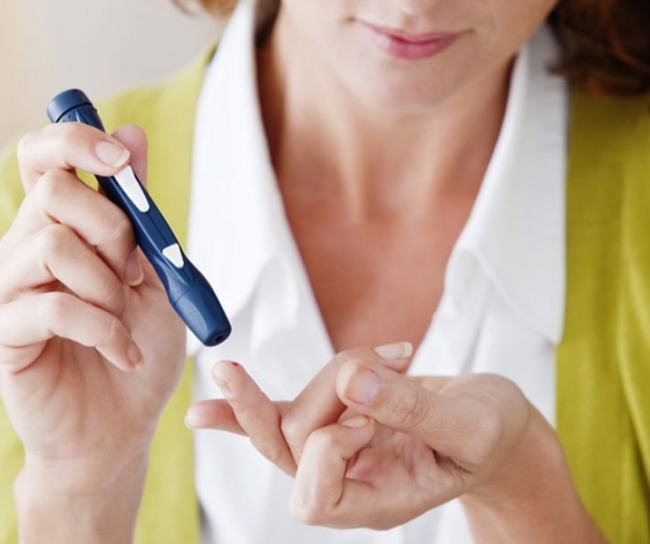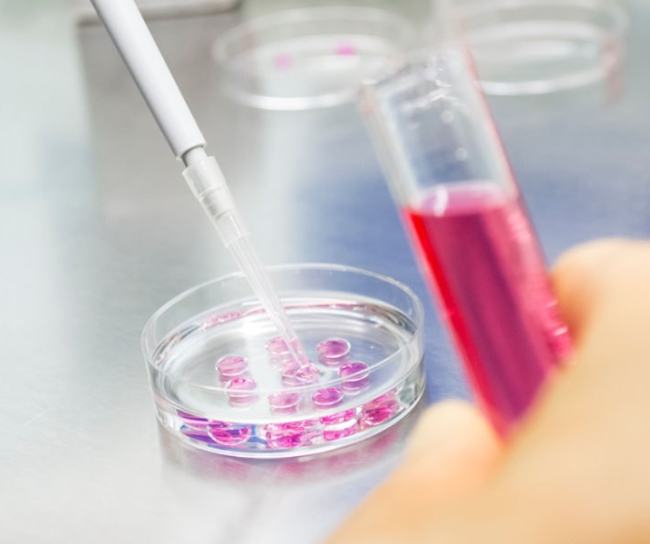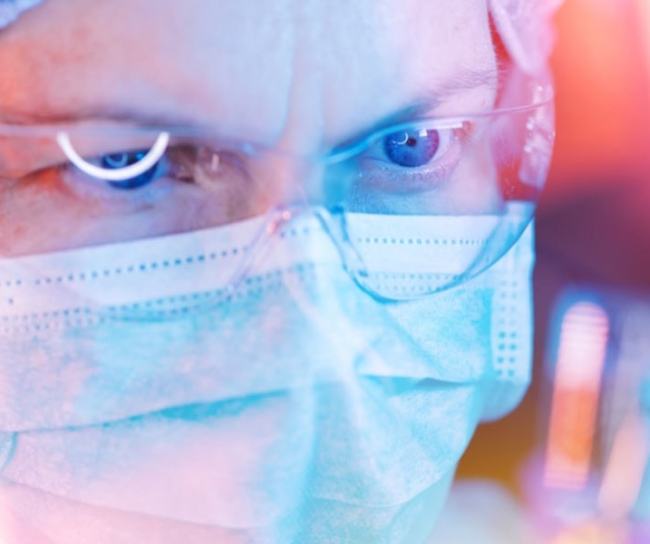Therapeutic Areas
Overview
Our drug research and development is based on innovation and scientific precision. We are working on new vaccines, medicines and other consumer health products that can help millions of people around the world.
MSD supplies many prescription medicines in the Czech Republic in more therapeutic areas such as cardiovascular disease, oncology, diabetes, infectious disease and immunology.

Cardiology
More than 50,000 people die of circulatory diseases in the Czech Republic every year. Globally, this is a disease that causes nearly twice as many deaths as cancer.
MSD was the first to allow doctors and patients to receive a statin-containing product. These drugs are today the most prevalent prevention of cardiovascular risks. A study of the efficacy and safety of statins has become a major milestone in cardiology, confirming that statin treatment effectively reduces the risk of death by almost one-third in patients suffering from coronary heart disease.
MSD also ranks first in the discovery of alternative treatments for statin therapy when it first came up with so-called nestatin therapy.

Diabetes
There are more than 800,000 patients with diagnosed disease in the Czech Republic – diabetes (diabetes) II. type. Over the last 20 years, the number of patients has doubled and is increasing.
Untreated or under-treated diabetes II. Over time, it will cause serious health complications, seriously endangering the health and life of patients. The treatment of late complications of the disease is very costly but can no longer heal the patient. Timely and intensive therapy mostly can prevent the emergence of serious health complications.
In 2006, MSD introduced the treatment of diabetes II. type as the first in a new class of drugs that lower blood sugar with a low risk of developing hypoglycemia.
Patient data in the Czech Republic confirm that patients with diabetes are well treated. type have similar prospects as healthy people.

Immunology
Biological treatment has become one of the most important achievements of modern medicine over the past decades. At the beginning of the 21st century it brought about a major turning point in the treatment of a number of serious diseases. Everything started 20 years ago, when the introduction of biological treatment extended the treatment options of rheumatic, gastrointestinal or dermatological diseases that had been difficult to treat.
MSD offers biological treatment of chronic autoimmune rheumatic diseases such as rheumatoid arthritis, ankylosing spondylitis (known as Bechterew’s disease), or treatment of psoriatic arthritis.
In the field of gastroenterology, there is a hope for patients with so-called idiopathic intestinal inflammation (inflammation without a clear cause), including Crohn’s disease and ulcerative colitis. Dermatological patients with psoriasis (psoriasis) can also rely on biological treatment.
Biological treatment specifically targets the unwanted immune responses of the human body and uses various components of the immune system to do so. The goal of treatment is to achieve a symptom-free period when the disease is not active and the patient can engage in routine activities without restriction (inducing so-called disease remission).

Chronic Hepatitis C
Although the cause of the disease was only recently discovered – in 1989, the global number of patients with chronic hepatitis C (HCV) is estimated at 71 million. Most of them do not know about their illness. The number of patients in the Czech Republic can be estimated at 40 – 50 thousand people. About one thousand of them are diagnosed with HCV every year.
HCV is one of the most common causes of chronic liver disease. Untreated disease leads to irreversible liver damage to cirrhosis, or the development of hepatocellular carcinoma. Liver transplantation does not lead to the elimination of the disease. In addition, patients are carriers of the virus via the blood.
In just 25 years since the discovery of the virus and the cause of the disease, a direct-acting antiviral has entered the market, making the previously very difficult-to-treat disease easy to treat for more than 95% of the patients. This rate has no comparison in medicine and HCV is the first chronic viral infection to be completely cured.
MSD promotes the healing of all HCV patients as soon as possible, thereby preventing the spread of HCV.

HIV
HIV or human immunodeficiency virus is a virus that attacks the immune system. AIDS is the last stage in the development of HIV infection and is a collection of specific diseases that can develop due to reduced immune system performance. The virus is transmitted through the blood and the main route of infection is unprotected sexual intercourse or breast milk of an HIV positive mother.
In the mid-1980s, MSD launched clinical research on HIV. Our scientists were among the first to start developing drugs to suppress the growth of HIV virus, and we continue to do so today.
In the period since the beginning of monitoring of HIV infections – ie from 1985 to 2018, there were in total 3 368 cases of HIV positivity.
In the Czech Republic, the number of newly detected cases of HIV infection (208 cases) decreased for the first time in 2018 compared to previous years.

Oncology
Intensive clinical research on oncology has led to the discovery of immunotherapy. It is a treatment procedure that makes the tumor recognizable for the immune system, allowing the patient’s immune system to destroy the cancer cells after they have been “unmasked”.
In 2015, MSD introduced a new treatment in the EU that can be used to treat various cancers such as malignant melanoma, lung cancer, bladder cancer and other cancers. Immunotherapy in the treatment of malignant tumors has been extensively studied in clinical research and new treatment options have been gradually approved by responsible regulatory authorities and implemented in clinical practice.

Hospital and Acute Care
Acute hospital care is an important part of our activities. We have long been researching and developing drugs that push the possibilities and limits of treatment for patients in acute, life-threatening conditions, and improve their prognosis and chances of cure. In the anesthesiology segment, we aim to extend the rapid reversal of neuromuscular blockade. MSD research and development is also moving forward in the area of antibiotics, which is very dynamic because of increasing bacterial resistance. We help hemato-oncological patients with bone marrow transplantation with anti-fungal prophylaxis to better predict recovery.

Vaccines
The discovery of vaccines is certainly among the greatest achievements in protecting public health and modern medicine in general. MSD has more than a hundred years of experience in the field of vaccines. One of the biggest infectious disease fighters at all, Dr. Maurice Hilleman, was involved in the development of more than 40 vaccines at the MSD.
MSD continues this historical legacy and continues to be one of the few companies to be committed to the very complex vaccine research and production process, both for children and adults.
MSD’s portfolio includes, but is not limited to, hepatitis A vaccines, rotavirus infections, pneumococcal infections, or MMR measles, mumps, and rubella vaccines. Our company also contributes significantly to the fight against human papillomavirus (HPV) diseases. HPV vaccines protect against a significant amount of cervical cancer, but also against other tumors or diseases, in both women and men.

